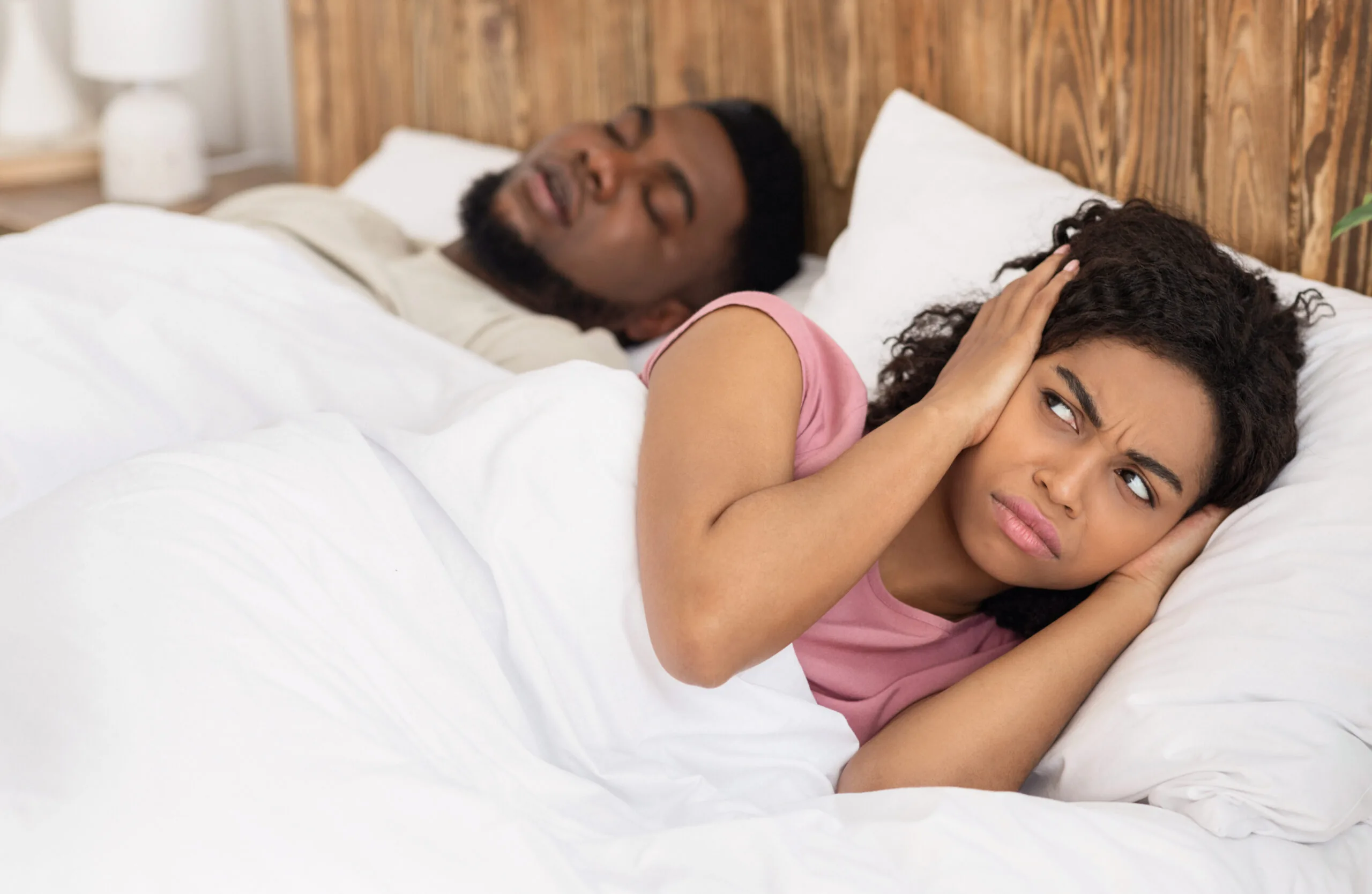 That familiar rumbling sound from your side of the bed might seem like just a nightly nuisance, but it could be a signal of something more serious. While not all snoring is cause for alarm, loud, persistent snoring is a primary symptom of obstructive sleep apnea (OSA). Understanding the difference is crucial for your long-term health.
That familiar rumbling sound from your side of the bed might seem like just a nightly nuisance, but it could be a signal of something more serious. While not all snoring is cause for alarm, loud, persistent snoring is a primary symptom of obstructive sleep apnea (OSA). Understanding the difference is crucial for your long-term health.
At the Center for Dental Anesthesia, Dr. James Geren and Dr. Zeyad Mady help patients across Alexandria, Fairfax, and Prince William County find restful sleep. We want you to know how to recognize the signs and get the effective treatment you need.
Snoring vs. Sleep Apnea: What’s the Difference?
Simple snoring happens when the tissues in your throat relax and partially block your airway, causing vibrations as you breathe. It’s often harmless.
Sleep apnea, however, is a sleep disorder where your breathing repeatedly stops and starts throughout the night. This occurs when your throat muscles relax so much that they completely block your airway. Your brain senses the lack of oxygen and briefly wakes you to restart breathing. These episodes can happen hundreds of time a night, often without you even realizing it.
So, how can you tell if your snoring is a sign of sleep apnea? Ask yourself or your partner these questions:
- Is your snoring loud, disruptive, and punctuated by pauses, gasps, or choking sounds?
- Do you wake up feeling tired, even after a full night’s sleep?
- Do you experience morning headaches, a dry mouth, or a sore throat?
- Are you excessively sleepy during the day, finding it hard to concentrate or stay awake?
If you answered yes to any of these, it’s time to seek a professional opinion.
The Hidden Dangers of Untreated Sleep Apnea
Ignoring the signs of sleep apnea does more than just disrupt your sleep. When left untreated, the constant oxygen deprivation and fragmented sleep can significantly increase your risk for serious health problems, including:
- High blood pressure
- Heart disease and heart attack
- Stroke
- Type 2 diabetes
- Depression and anxiety
The daytime fatigue associated with sleep apnea also raises your risk of accidents at work or while driving.
A Comfortable Solution: Sleep Apnea Oral Appliance Therapy
Many people hesitate to seek treatment because they fear the bulky and noisy CPAP machine. Fortunately, there is a comfortable, convenient, and effective alternative. For patients with mild to moderate obstructive sleep apnea, our team at the Center for Dental Anesthesia often recommends Sleep Apnea Oral Appliance Therapy.
This treatment involves a custom-fitted device, similar to a mouthguard, that you wear while you sleep. The appliance gently shifts your lower jaw forward, keeping your airway open and allowing you to breathe continuously and quietly throughout the night. It’s silent, portable, and easy to use.
Take the First Step Toward Better Sleep
Don’t dismiss your snoring. Dr. James Geren and Dr. Zeyad Mady have the expertise to determine if your snoring is a symptom of sleep apnea and can guide you toward the right treatment. If you’re in Northern Virginia and tired of being tired, contact the Center for Dental Anesthesia today to schedule your consultation. It’s time to reclaim your nights and protect your health.
Contact Center for Dental Anesthesia:
703-379-6400
Location (Tap to open in Google Maps):
5284 Dawes Ave
Alexandria, Virginia
22311
